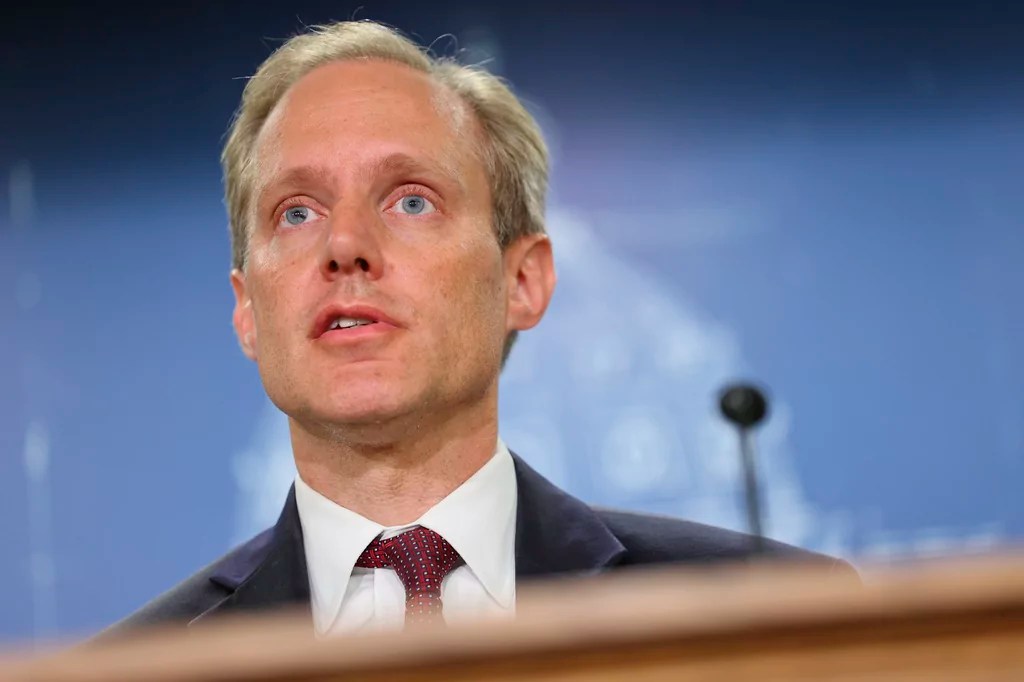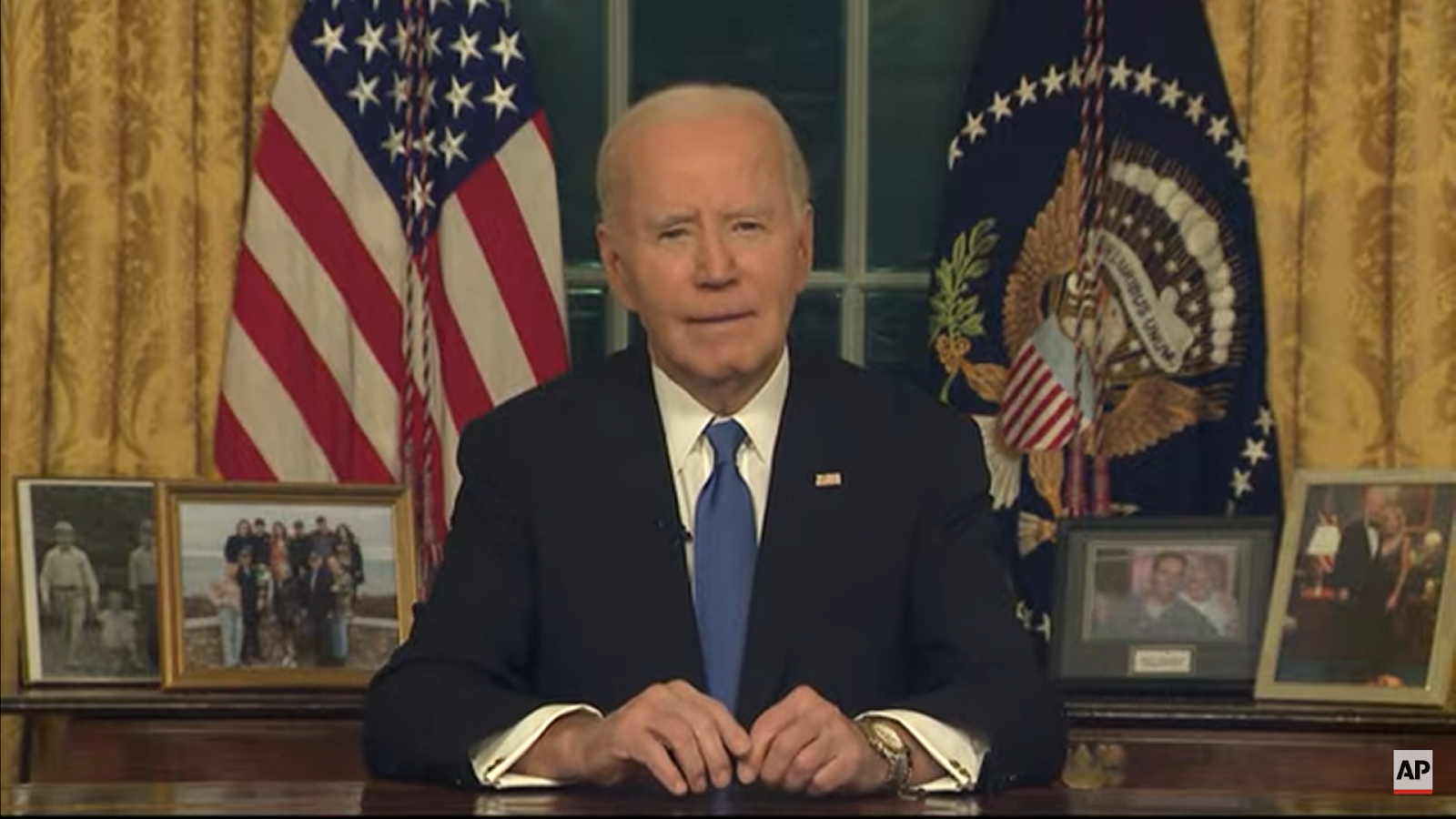Biden investigation uncovers near-resignation event during his tenure as Obama’s VP
Joe Biden Considered Resigning Over Disagreements with Obama’s Afghanistan Policies
Then-Vice President Joe Biden contemplated stepping down from his position during the Afghanistan War due to his strong opposition to the administration’s policies, according to excerpts from the special counsel report on Biden’s handling of classified documents.
As President Obama approved the deployment of troops to Afghanistan in 2009, Biden consistently voiced his concerns, referring to the decision as a “strategic blunder” that could potentially undermine the entire administration. At one point, Biden even contemplated resigning in protest, as revealed in his notebook shortly after Thanksgiving in 2009.
“Tomorrow the President is going to make a fateful decision regarding Afghanistan — as I sat looking out the window at the sea — thinking I should resign in protest over what will bring his administration down,” Biden wrote. “Although I obviously wasn’t there, I feel like this is what it must have felt like for Kennedy then Johnson in the early days of VTN [Vietnam]. I feel guilty and boxed in myself. Guilty for not having been more successful w/ the President — and staying. Boxed in by knowing or at least feeling that my resignation would only harden his position and leave him with one less voice.”
Biden’s strong opposition to sending troops to Afghanistan is well-documented in his notes, which were cited in the special counsel report by Robert Hur. In an attempt to change Obama’s mind, Biden even sent a memo strongly criticizing the plan.
According to Hur, Biden later explained that he sent the memo “because I was trying to change the President’s mind, and I wanted to let him know I was ready to speak out… and to really, quite frankly, save his a**.”
The special counsel report revealed that the memo, along with other marked documents, was found in Biden’s Delaware home. Hur concluded that Biden had a “strong motive” to retain these documents as they served as evidence of his opposition to the Obama administration’s Afghanistan policies.
“He wanted the record to show that he was right about Afghanistan; that his critics were wrong; and that he had opposed President Obama’s mistaken decision forcefully when it was made — that his judgment was sound when it mattered most,” the report stated. “This evidence provides grounds to believe that Mr. Biden willfully retained the marked classified documents about Afghanistan.”
Although the special counsel report acknowledged that Biden mishandled classified government documents, Hur determined that his conduct did not warrant criminal charges.
Click here to read more from The Washington Examiner.
How did Joe Biden ultimately handle his disagreements with the Obama administration’s policies in Afghanistan, and what impact did this have on his role as Vice President
I contemplated resigning today — because I cannot endorse the direction we are taking. I believe this is the wrong war at the wrong time for the wrong reasons.”
This excerpt from Biden’s notebook highlights his strong opposition to the administration’s approach to the Afghanistan War. Biden believed that the decision to deploy troops to Afghanistan was a mistake and that it would not yield the desired outcomes. He saw it as a costly and unnecessary escalation of the conflict, one that could potentially undermine the entire Obama administration’s goals and legacy.
Biden’s disagreements with Obama’s policies in Afghanistan were not limited to his belief that it was the wrong war at the wrong time. He also criticized the strategy employed by the administration, particularly the reliance on counterinsurgency tactics. Biden argued that a counterterrorism approach, focusing on targeting and eliminating terrorist groups, would be more effective and less costly. He believed that the counterinsurgency strategy, which involved a significant presence of ground troops and nation-building efforts, would not produce the desired results and would instead prolong the conflict.
Despite his reservations, Biden ultimately chose not to resign from his position as Vice President. Instead, he continued to voice his dissenting opinions within the administration, advocating for alternative approaches and pushing for a change in strategy. Biden’s willingness to express his disagreements openly and his commitment to influencing policy from within the administration demonstrated his dedication to his role as Vice President and his desire to steer the administration’s policies towards what he believed to be a more effective course of action.
Biden’s thoughts and feelings on the Afghanistan War and the Obama administration’s policies have become public knowledge through the release of excerpts from the special counsel report on his handling of classified documents. These revelations provide insight into the internal dynamics and discussions within the Obama administration during a significant period marked by decisions regarding Afghanistan.
As Biden assumes the presidency, with Afghanistan still a contentious issue and the war having lasted for two decades, it remains to be seen how his views and experiences as Vice President will shape his policies and decisions moving forward. The Afghanistan War continues to be a focal point for American foreign policy, and Biden’s perspective as someone who considered resigning over disagreements with the previous administration’s approach adds a unique dimension to the ongoing discussions surrounding the future of U.S. involvement in Afghanistan.
In conclusion, Joe Biden’s contemplation of resigning from his position as Vice President due to his strong opposition to the Obama administration’s Afghanistan policies sheds light on the internal disagreements and debates within the administration. His concerns reflect the complexities surrounding the Afghanistan War and the divergent opinions on the most effective strategies to pursue. As President, it will be interesting to see how Biden’s past experiences and viewpoints shape his decisions regarding U.S. involvement in Afghanistan and the broader foreign policy agenda.
" Conservative News Daily does not always share or support the views and opinions expressed here; they are just those of the writer."





Now loading...